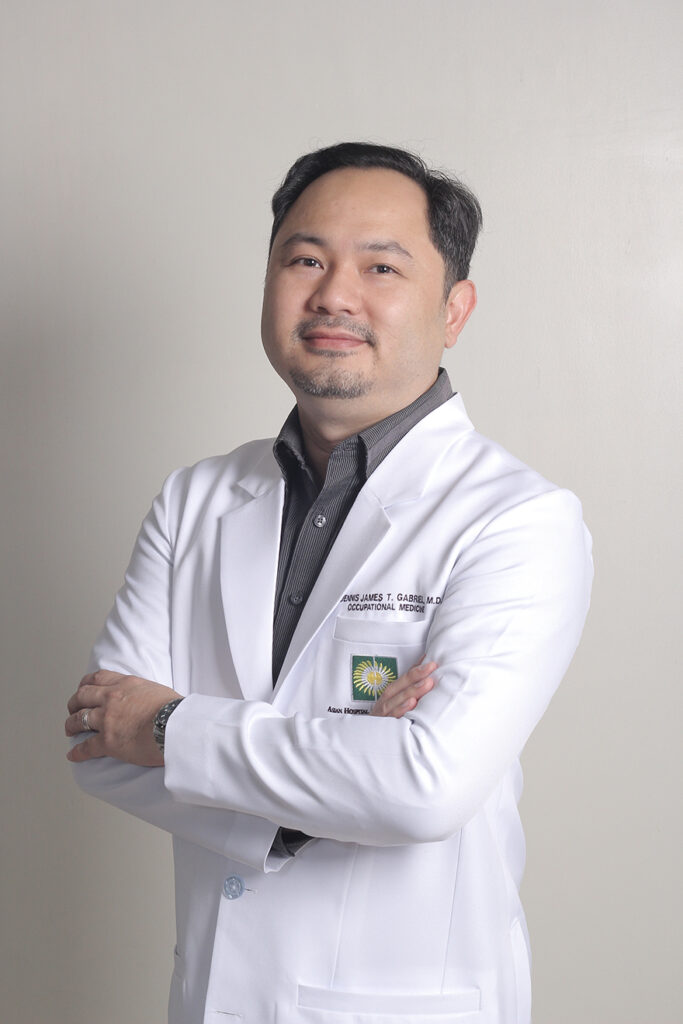In Philippine society, men are recognized as the head and breadwinner of the family. They are taught to be strong. There are other Filipino men who are proud and arrogant and do not like the idea of being defeated or embarrassed in front of their peers.
When it comes to their health, however, Filipino men usually defer to their wives. Even if their ailment has caused them to miss work for a few days, Filipino men will still refuse to seek a doctor.
“In my experience, men tend to be macho and apathetic when it comes to their health. They don’t immediately consult and tend to delay it,” related Dr. Arturo Castro Jr., Head of the Stone and Kidney Unit of The Medical City South Luzon.
Castro specializes in urology and endourology, and is a certified robotic, laparoscopic and endoscopic surgeon. “When they come to see me, they tell me it’s because of their wife’s persistence. But basically, on their own, they tend not to mind these problems.”
MACHO

Castro added that Filipino culture dictates that men are told to be “manly” and macho and not to be overly sensitive about the pain that they experience. As such, men are more likely to delay going to the doctor and will only do so when they can no longer tolerate the pain.
“I think another factor is that men want to be in control and if they go and have their check-up, they feel that they will lose control because they do not know what to expect. There is the fear of the unknown,” he said. “They don’t like that and these are situations that they would avoid at all circumstances.”
When men do finally give in to the wishes of their wives and families, more often than not, they are already in the advanced stages of their disease.
“For example, when it comes to the prostate, sometimes men have this feeling that there’s still some urine left in their system even if they have already gone to the comfort room. There are those who already urinate in their briefs even if they are just three steps away. It’s symptoms like these that really trigger men to seek consult,” he added.
ANNUAL CHECK-UP

To jumpstart the Filipino man’s journey to health, Dr. Dennis James T. Gabriel, a consultant from the Department of Occupational and Family Medicine of Asian Hospital and Medical Center, pointed out that it is important that everyone undergoes an annual medical exam to establish a health baseline.
“Prevention is better than cure and an annual medical exam will help with this. It will also help identify risk factors for certain diseases and to detect disease that has not apparent findings,” Gabriel explained.
The annual visit will also be a good way for the doctor to instill health teaching to promote healthy behavior and to update the clinical date since the last check-up.
An annual medical exam involves a patient having his vital signs (blood pressure, heart rate, respiratory rate, height and weight) checked. He will also be checked for hypertension, tachycardia (heart rate of over 100 beats per minute), tachypnea (the way you breathe) and body mass index.
VITALS, PATIENT HISTORY
After taking the patient’s vital signs, he then undergoes a thorough interview with a doctor who takes down his medical history. He will be asked about his family history of illness, whether he had been hospitalized, undergone surgery or had been diagnosed for any illness. He will also be asked about his social history—if he smokes and if he is a regular consumer of alcoholic beverages, among others.
The patient will then undergo a physical examination where the doctor will perform a Digital Rectal Examination (DRE) and Scrotal Palpation. Based on the patient’s history and physical exam, the doctor will then decide on the list of tests that he has to undergo. These tests include chest X-ray, ultrasound, treadmill test, CBC, Lipid profile, Liver and Kidney Function Test, Blood Test, and prostate ultrasound.
When the results are ready, the patient will see the doctor again for the interpretation of the results and to see whether he needs to see a specialist.
“The annual medical examination plays an important role in having a healthy lifestyle. It is a way to check the overall status of your health and in a way helps detect and prevent patients from having serious disease with the help of expert primary care physicians,” he said. “These yearly check ups help keep your and your loved ones’ health in check and prevent you from having any serious disease.”
SPECIALIST REFERRAL
If there are findings in the patient’s PSA and DRE results, he will be referred to a urologist who will do a more thorough examination and family history of the patient.
“If he has a first degree relative—his father or a brother—who has been diagnosed with prostate cancer, he is six times more likely to get the disease. Genetics is very important for me,” Castro said. “I also look into whether the patient has any vices—if he smokes or drinks alcoholic beverages—because that increases his chances of getting the disease.”
Castro noted that more often than not, men engage in vices like smoking and drinking alcoholic beverages which will eventually take a toll on their health. Due to these vices, men tend to be careless in terms of lifestyle.
“Men sleep late, go out with their friends and this takes a toll on their health so that by the time they are in their mid-40s or mid-50s, they usually have diabetes and hypertension which leads to kidney diseases,” he said.
One of the tests that the patient might have to undergo is an MRI which will determine whether there is a lump in the prostate. It is through the Prostate Imaging Reporting and Data System (PIRADS) score that will determine the kind of cancer the patient has. A PIRADS score of 1 and 2 indicates that a low probability of clinically significant prostate cancer is present. PIRADS 3, 4, and 5 have increasing probability that clinically significant prostate cancer is present.
TREATMENT PLAN
If the patient has been diagnosed with prostate cancer, the doctor will proceed to come up with a treatment plan which will include surgery and depending on the outcome of surgery, patient might have to undergo radiation treatment.
“I would advise surgery because that is the ideal treatment, it is a curative procedure. Fortunately, prostate cancer is one of those cancers that can be cured if caught at an early stage,” he said.
When asked for tips on how to keep healthy especially during this pandemic, Castro said it is important to maintain a healthy diet and to engage in 30 minutes sweat inducing exercise. He added that it is also important to live a stress-free life.
“Try to be more kind to yourself and don’t take on too much. During this pandemic, try to have a different perspective. Be thankful for what you have. Of course, there are a lot of things that we would like to have but the pandemic has prevented it from being achieved right now but be kind to yourself and don’t stress yourself too much,” he said.


